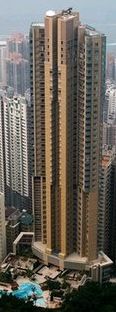No record-breaking price for an apartment today! Not so far, anyway – we still have the afternoon ahead. Yesterday, Henderson Land announced that it had sold a five-bedroom duplex in Conduit Road for HK$71,280 a square foot: apparently the highest ever in the world. A few weeks ago, Sun Hung Kai announced that it would be selling a pair of smaller penthouses in its West Kowloon development, the Cullinan, for around HK$75,000 a square foot. That followed the sale of a one-bedroom, slightly generous shoe-box type of flat in Tsim Sha Tsui for over HK$41,000 a square foot.
What’s going on?
One explanation is that the property developers behind these claims are lying. Legally, they are entitled to describe a 500-square-foot apartment as being 670-square-foot. Subject to self-regulatory oversight of a most understanding sort, they can produce artists’ impressions of forest-hugged developments with ocean views, when in reality the sites overlook rancid sewage facilities. Exaggerating sales prices, say through a rebate to the purchaser, is an old trick to lure other suckers into paying over the odds.
Won’t God punish the property tycoons with eternal damnation in Hell, as per the 10 Commandments? Fortunately for them, no. Those members of the Big Lychee’s real estate cartel who are believers subscribe to Evangelical Christianity, according to which the Almighty rewards you, right here on Earth, with no-questions-asked material bounty provided you accept the stories about the creation and Noah’s Ark as total truth.
Another reason: “Six years ago, there were no Chinese billionaires. Three years ago, there were 15. And now [there might be] double the known 130.” And for every billionaire, there are hundreds of mainlanders in the market for properties costing tens rather than hundreds of Hong Kong dollars. Although the US$56 million condo just a few streets up the hill from my own slum dwelling catches the world’s headlines, many lower-profile luxury units are going for smaller-but-still-ridiculous sums.
It’s called ‘hot money’ – ‘hot’, perhaps like the water in a washing machine turned up high, to eradicate even the most stubborn stains. No-one asks how these people managed to transfer this cash from behind China’s not-so-Great Foreign Exchange Wall, if that’s where it came from, or how they got hold of it in the first place. For the mainstream mainland buyers, a luxury flat in the Big Lychee offers a Hong Kong ID card, complete with residency rights, permission to have more than one child, and access to our wonderful (apparently) schools and hospitals.
For the big boys splashing out nine-figure sums on top-floor suites, there is, we are told, another incentive: the trophy that is the most expensive home in the city. Some 10 or 15 years ago, I was sitting in an aircraft near a group of early mainland tourists returning home from a package trip to Southeast Asia. One of the men produced a gaudily coloured polo-style T-shirt and announced to his friends that he had paid US$50 for it in Singapore. Another beat him with a similar article that had cost US$70. A third, with a triumphant grin, whipped out a 100-buck item, flaunting the price tag. Pure cotton, presumably. These people have come a long way since then, and they are back, assuring each other: “private lift lobby for each apartment a showcase of status.”
So this is Hong Kong’s latest dynamic industry. A member of the property cartel – whoever’s turn it is this time – gets a choice piece of land in Hong Kong’s urban area (in some cases, with assistance from the government’s own Urban Renewal Authority, which did Highland clearances in a past life and kicks out all the old neighbourhood’s residents). They build a huge tower between the harbour and the hills. They sell the units to mainlanders wielding rather odd-smelling cash for extremely high prices, with a profit margin those of us in less favour with God can only dream of. Essentially, they are prostituting a city: privatizing the view and selling it to outsiders.
Speaking on a radio phone-in yesterday, Chief Executive Donald Tsang advised local people to “look for smaller and cheaper units away from the city centre.”
